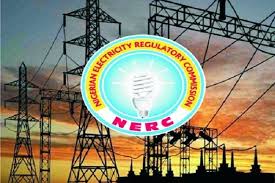The Nigerian Electricity Regulatory Commission (NERC) has issued a firm directive requiring all grid-connected power generation companies (GenCos) to fully integrate with the national Supervisory Control and Data Acquisition/Energy Management System (SCADA/EMS) by December 31, 2025. Failure to comply will attract severe financial penalties and potential disconnection from the national grid.
This directive is part of a new regulatory framework titled “Order on the Mandatory Integration of Grid-Connected Generating Units into the New SCADA/EMS for the Nigerian Electricity Supply Industry,” issued by NERC on May 22, 2025, and made public on Wednesday in Abuja.
The order marks a major step towards strengthening Nigeria’s fragile electricity grid by enabling real-time monitoring, improving load dispatch, and reducing nationwide system failures. In recent years, the national grid has suffered repeated collapses, often attributed to weak coordination between generation, transmission, and distribution segments. Many power plants still operate without full integration into the SCADA/EMS, limiting the Transmission Company of Nigeria (TCN)’s ability to oversee generation performance and react swiftly to faults.
The SCADA/EMS platform serves as the digital backbone of modern power grid operations. It enables automated control, real-time fault detection, live data sharing, and system-wide visibility. Under the new regulation, NERC is compelling all GenCos to install SCADA-compliant data acquisition devices that can communicate seamlessly with TCN’s infrastructure and the Nigerian Independent System Operator.
The commission stated:
“Pursuant to Section 12.2 of the Grid Code, all generation companies are mandated to provide real-time operational data to the Nigerian Independent System Operator through the SCADA/EMS to facilitate effective grid management.”
The order also referenced Section 20.16 of the Grid Code, which requires uninterrupted communication and data exchange between GenCos and TCN’s SCADA/EMS for accurate system monitoring, fault detection, and load dispatch. These measures include the installation of Remote Terminal Units (RTUs), interface cabinets, and appropriate wiring systems that ensure smooth transmission of real-time signals from generation plants to the National Control Centre.
NERC’s order sets a clear deadline: all generating units connected to the national grid must be fully integrated into TCN’s SCADA/EMS by December 31, 2025. Real-time data to be transmitted must include key operational metrics such as Active Power, Reactive Power, Voltage, Frequency, Circuit Breaker Status, and Fault Alarms.
According to the commission, “The SCADA/EMS/System Telecommunications project being executed by the TCN has progressed substantially and now requires full participation from GenCos to become fully functional and effective.”
The aim is not only to achieve technical compliance with the Grid Code but also to support a more resilient and efficient Nigerian Electricity Supply Industry (NESI). Enhanced visibility into generation output will allow for better system planning, quicker responses to disturbances, and more reliable energy delivery across the country.
This move comes at a time when Nigeria is trying to stabilise its power infrastructure and reduce the frequency of blackouts, which have long hindered industrial productivity and economic growth, especially for small and medium-sized businesses. By compelling GenCos to integrate with a centralised grid management system, NERC is also reinforcing efforts to modernise the sector and attract investment.
As Nigeria pushes forward with energy reforms and digital transformation, the successful implementation of this directive will be critical. The commission’s stance sends a strong message that the era of loosely coordinated grid operations is over and that compliance with technical standards will now be strictly enforced.
With the December 2025 deadline in place, GenCos are expected to act swiftly, or risk heavy sanctions including exclusion from the grid itself.










